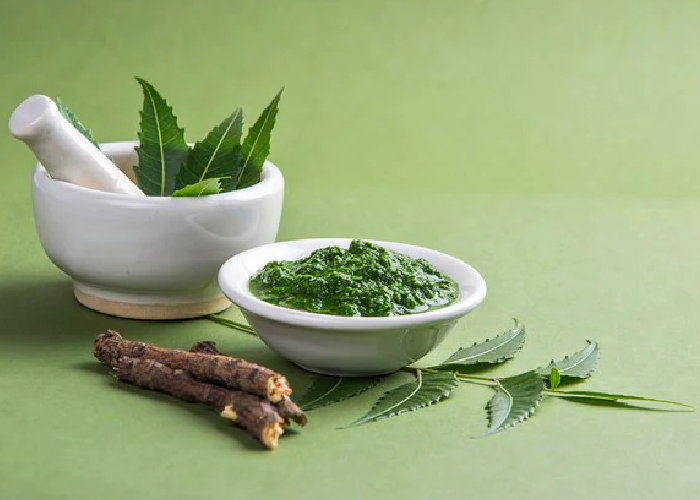Herbs are an important part of Ayurveda. Ancient Ayurvedic texts have mentions of a huge variety of herbs that help heal an array of health conditions. Each of these herbs has high value for its special medicinal qualities and healing potential. The best part is that they offer mild yet efficient therapeutic benefits with few adverse reactions.
Top 10 Ayurvedic Herbs
Here is the list of top 10 Ayurvedic herbs.
Ashwagandha (Withania Somnifera)
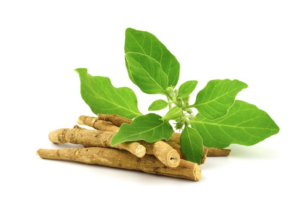
Known for its adaptogenic qualities, Ashwagandha supports resilience and vitality by assisting the body in reducing stress. It boosts the health of the adrenal glands and sharpens the mind by offering better sleep.
Precautions: Ashwagandha is a strong herb. So, do not take it without the guidance of a qualified Ayurvedic doctor. Also, avoid it when pregnant and if you take medicine for autoimmune diseases or thyroid problems.
Turmeric (Curcuma Longa)
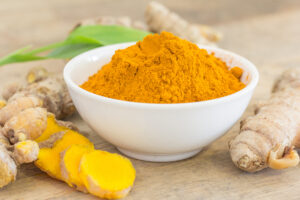
This golden spice has strong anti-inflammatory and antioxidant properties that help relieve joint pain, improve healthy digestion, and increase immunity. The active chemical ‘Curcumin’ can treat long-term health issues including diabetes and arthritis.
Cautions: Before adding it to your regimen, speak with your doctor about potential interactions with blood thinners.
Tulsi (Ocimum Sanctum)
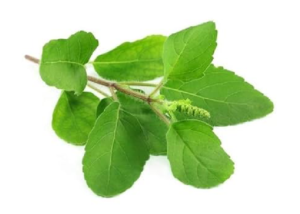
The “Queen of Herbs,” Tulsi (Ocimum Sanctum), is renowned for its immune-modulating, adaptogenic, and antibacterial qualities. It improves energy, lowers stress and promotes respiratory health.
Precautions: Steer clear of excessive ingestion, especially in people with bleeding problems or low blood sugar.
Triphala
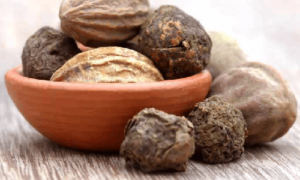
A combination of three fruits (Amalaki, Bhibitaki and Haritaki), Triphala aids in cleansing, renewal and digestive health. It nourishes the body’s tissues, promotes regularity, and helps with mild cleaning.
Precautions: Take small doses first and increase them gradually since some people may have stomach discomfort.
Brahmi (Bacopa Monnieri)

Brahmi promotes mental clarity, memory and focus on its cognitive-enhancing qualities. Those looking to maintain their brain health can benefit.
Precautions: Take advice from a qualified doctor before administering this herb to those who have hypothyroidism, surgery or mental health issues.
Neem (Azadirachta Indica)
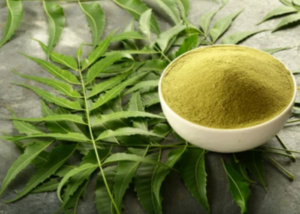
Because of its antibacterial, antiviral, and antifungal qualities, neem (Azadirachta Indica) is referred to as the “village pharmacy”. It’s a multipurpose herb for general well-being, supporting immunity, dental and skin health.
Precautions: Avoid during pregnancy and get medical advice before applying neem oil topically as it may cause irritation to some.
Ginger (Zingiber Officinale)
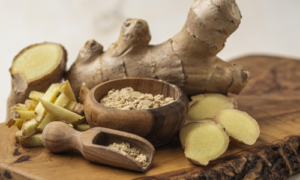
A powerful ingredient in cooking and medicine, ginger promotes healthy digestion, reduces nausea and lowers inflammation. It minimises tense muscles, promotes cardiovascular health and reduces menstrual cramps.
Precautions: Moderate consumption is advised since high dosages may irritate the stomach.
Licorice (Glycyrrhiza Glabra)
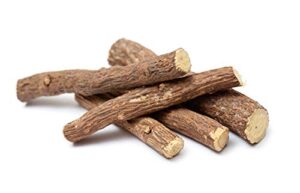
Licorice is my absolute favourite. It is sweet and calming, balances the adrenal glands, reduces throat discomfort and promotes respiratory health. Also, it helps reduce menopausal symptoms, assist gastrointestinal healing and manage stress.
Precautions: Use under a doctor’s supervision since prolonged usage or excessive dosages may cause hypertension or electrolyte imbalances.
Guduchi (Tinospora Cordifolia)

Guduchi, sometimes called Giloy, is a plant (Tinospora Cordifolia) that improves detoxification, boosts immunity and promotes longevity. It is advantageous for reducing inflammation, avoiding infections and enhancing general well-being.
Precautions: If you receive immunosuppressive medication, see a doctor before taking Guduchi. Also, avoid it during pregnancy.
Amla (Emblica Officinalis)

Packed with antioxidants and vitamin C, Amla boosts immunity, regenerates the body and encourages healthy, glowing skin and hair. It improves nutrition absorption, facilitates digestion and may help control diabetes.
Precautions: If you are prone to digestive problems, exercise caution as Amla may induce gastrointestinal pain.
You may improve your general health by including these vital herbs in your daily routine, but you should proceed cautiously, particularly if you are pregnant or have underlying medical concerns. Speak with an Ayurvedic doctor before beginning any new herbal prescription to ensure safety and security.
By embracing Ayurvedic wisdom and integrating these herbs into everyday routines, one can achieve complete health that respects the body’s natural healing processes and adheres to the age-old natural healing principles.
If you need any help with the Ayurvedic diet, reach us anytime!
